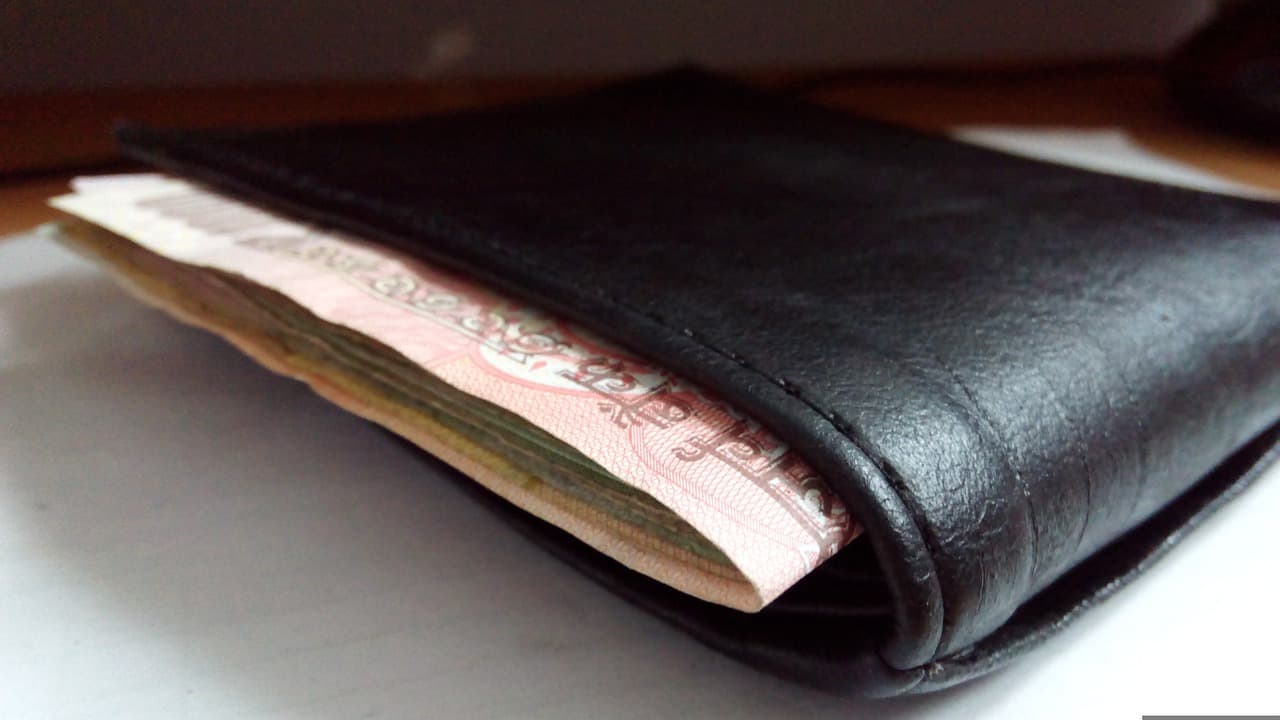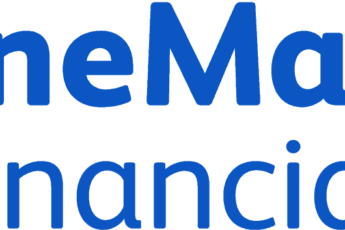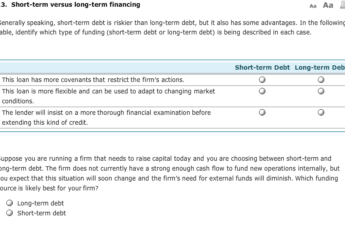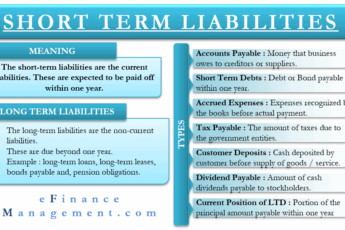Before you apply for a short term loan, you need to check your eligibility. This includes interest rates, repayment terms, processing fees, and documents you must provide. If you don’t have time to check all of these items, you may not be eligible to borrow money. Fortunately, there are a few tips to help you make the process go smoother.
Getting a short-term loan
If you’re in need of fast cash, getting a short-term loan might be exactly what you need. These loans do not require collateral and are usually granted based on your income and employment status. However, because these loans are usually only used for a short period of time, they typically have a high interest rate. This is to offset the risk of providing you with cash for a short time. Long-term loans are a better option for businesses that need long-term cash.
When applying for a short-term loan, it’s crucial to carefully consider your budget and monthly income. These details can help you determine the exact amount you need to borrow. You should also understand the repayment plan to ensure you can afford the monthly payments. Some short-term loans can have high interest rates and require upfront fees, which can be stressful on your budget.
Another alternative to payday loans is getting a paycheck advance. These loans are usually for no more than $500 and require repayment on your next payday. Federal credit unions also offer these loans, which can be helpful if you’re facing unexpected expenses. Some credit unions will charge only a $20 application fee and will only charge you a modest interest rate.
PenFed Credit Union is another option for a short-term loan with low interest rates. The lender will generally review your personal and financial details and then make you an offer. Once you’re approved, you’ll receive a contract and loan documents. Be sure to carefully read all of them. Then, the lender will deposit the cash into your checking account in as little as one business day.
Before applying for a short-term loan, it’s a good idea to check your credit score. The lender will need to see your income and assets. Your credit score and repayment history will determine whether you’re approved. The lender will want to see your savings and insurance policies, as these will help secure the loan.

Short-term loans are available to students at a variety of institutions. Depending on your situation, these loans typically range from $500 to $2,500. The repayment period is usually two to four weeks. Short-term loans are available for students who need cash fast for an emergency situation. However, you must be sure to repay the loan as agreed upon.
When searching for a short-term loan, check out the rates and terms of different lenders. Each lender will have their own eligibility requirements. Some will require a minimum income, while others will not. Some lenders will even perform a hard credit check. If you have a poor credit history, a short-term loan is still an option for you.
The time it takes to get approved and funded can vary from lender to lender. The time period will depend on how urgent you need the money. You should take note of this because if you apply for a short-term loan and get rejected, your credit score might be affected.
Getting a short-term loan with a co-borrower
If your credit score is low, or you’re not able to qualify for a traditional loan, you may want to consider a co-borrower. You can benefit from the co-borrower’s income and assets, which can help you get approved for the loan. However, it is important to note that a co-borrower will appear on your credit report, so you’ll need to keep this in mind when evaluating co-borrowers.
If you have co-borrowers, you can potentially benefit from a lower interest rate and a higher loan amount. Since your co-borrower is sharing your debt, the interest rate and monthly payments will be lower. In addition, you’ll likely qualify for a lower annual percentage rate.
When considering a co-borrower, it’s important to make sure that your co-borrower’s income is higher than your own. Lenders look at income and debt ratios to assess whether the co-borrower is likely to repay the loan. A high debt-to-income ratio means a co-borrower is less likely to default on a loan. You should also make sure that the co-borrower’s income is steady compared to their expenses. This ensures the peace of mind of both parties.
You should always make sure that your co-borrower has a good income history and credit history. Co-signing with someone with bad credit is risky and can lower your credit score. You should also keep in mind that making late payments could have adverse consequences for both of you.

If you’re not able to make the payments on time, the co-borrower is still responsible for the remainder of the loan. If you default, it can ruin the co-borrower’s credit, so be sure to make the repayment terms clear. In addition, make sure your co-borrower is aware of any financial hardships you’re facing.
A co-borrower can help you obtain a short-term loan, even if you have bad credit. But before signing up for a short-term loan, make sure you have the money to make all of the payments. A co-borrower can help you get a better interest rate and lower monthly payments than you can by yourself.
Some lenders are more conservative than others and will only approve borrowers with high credit scores or lower risk factors. In general, a score of 700 or higher is considered to be very good. Besides being an emergency loan, a short-term loan can also help you finance home improvements or debt consolidation.
A co-borrower is especially useful if you’re buying a home. For example, a co-borrower can help you downsize to a smaller home, or help you buy a new home for your aging parents. In addition, a co-borrower can be helpful if you’re self-employed and have trouble proving your income.
A co-borrower is a person who co-signs a loan for you, and agrees to repay the debt if the primary borrower can’t. This person may be a family member or trusted friend. It is important to make sure that the co-borrower has a high credit score and can make payments on time.
Getting a short-term loan with no collateral
Getting a short term loan without collateral eligibility check is an option for many people who need cash quickly. This type of loan is usually fast and easy to qualify for. It doesn’t require a credit check or collateral, so even people with bad credit can apply. Generally, these loans are short-term in nature, and the approval process can take as little as a few hours.
Getting a loan without collateral is possible, but it’s not without its risks. Some lenders will require a personal guarantee or a Uniform Commercial Code lien before issuing a loan. In return, borrowers agree to repay the debt, typically as part of the loan terms. However, it’s important to note that personal guarantees and liens allow lenders to pursue borrowers for nonpayment of debt.

There are two main types of loans: secured and unsecured. The former requires collateral, such as a home, a car, or a mortgage. Unsecured loans don’t require collateral, but they may have higher interest rates than secured loans. While you won’t lose your house if you don’t make payments on time, you’ll still have to pay interest and fees. An unsecured loan can be obtained from a bank, credit union, or an online lender. These loans are usually paid back in monthly installments.
Another option for those with poor credit is to take out a short-term loan with a co-signer who has excellent credit. This option can help you qualify for lower interest rates. However, be aware that taking out a new loan can have a small impact on your credit score. This is why it’s important to choose a reputable lender and shop around for the best loan deal.











